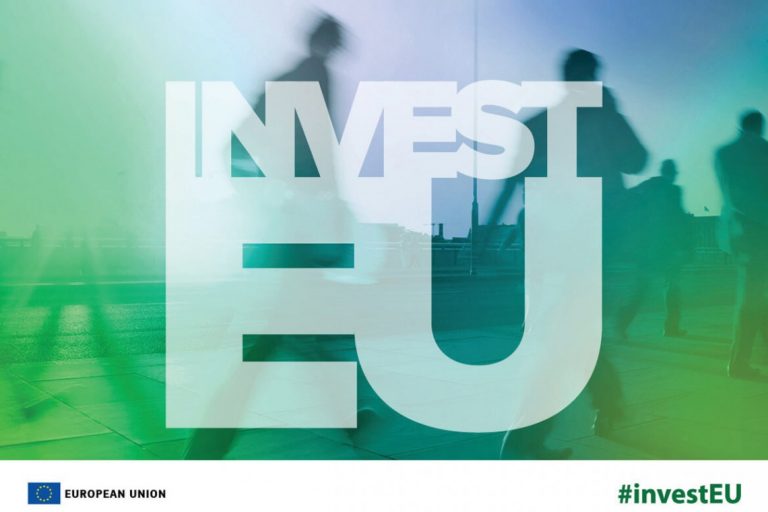On Wednesday evening, the European Parliament’s plenary adopted with a large majority the InvestEU draft regulation. In the future, the InvestEU programme will bring together various EU investment programmes such as the Juncker Plan („EFSI“) and several sector-specific programmes for EU-wide and regional projects under one umbrella. Such investment programmes function through a risk-reducing EU guarantee, which considerably reduces the projects’ financing costs on the market. In total, EU guarantees amounting to 40.8 billion euros in the period from 2021 to 2027 shall finance projects with an estimated investment volume of around 700 billion euros. As single access point, InvestEU should offer a better overview and advice for different funding pools and standardise project applications. Now the EU Parliament, the Council of Member States and the EU Commission must agree on a common line before the European elections in May.
MEP Sven Giegold, financial and economic policy spokesperson of the Greens/EFA group commented:
“It is a Green success for investment promotion in the EU that InvestEU is set to dedicate 40% of all financing and 65% of financing in the area of sustainable infrastructure for climate protection. This is more than the Commission had called for in its proposal. At a time when the US is withdrawing from the Paris Climate Agreement, EU-funded investment projects are more important than ever to protect our climate.
Thanks to our Green initiative, in the future all funded projects will have to comply with environmental guidelines. This applies not only to projects in the field of sustainable infrastructure, as proposed by the Commission. We have strengthened the green and social criteria for all eligible projects. It is groundbreaking that renewable energy cooperatives are explicitly mentioned as possible funding projects.
By promoting social projects, InvestEU will make a contribution to strengthening social cohesion in the EU. We have successfully worked to ensure that projects in the field of social investment promote gender equality and strengthen the participation of women.
With the streamlining of various instruments under the umbrella of InvestEU, the previously fragmented EU funding will become more transparent and accessible. In the future, investment projects can benefit from central advice and thus find the right support more easily. We have successfully prevented a weakening of regional and national development banks in the allocation of funds, because EU funds should have an equal effect on both large and small scale projects.
We were unable to establish the overall exclusion of fossil infrastructure and nuclear power projects from EU funding against the opposition of Christian Democrats, right-wing conservatives, liberals and parts of the Social Democrats. The possibility of promoting the defence industry is still included in the text, but it is part of another EU programme and will thus ultimately disappear from InvestEU. That is the only reason why, finally, we Greens were able to vote in favour of the Parliament’s position. Another drawback is that Member States will be able to transfer money from the cohesion funds to InvestEU funds. The cohesion funds should serve the sole purpose of regional development and not be channelled to InvestEU for other purposes.”
The Green successes (often achieved in co-operation with other political groups) in the file are:
– We increased the overall climate spending target from 30% to 40% and the spending target of the sustainable infrastructure window from 50% to 65%
– We introduced an important focus on building renovation in the sustainable infrastructure window
– We managed to extend the guidance on sustainability and climate protection to all investment windows
– We strengthened the additionality requirement of projects entitled to funds, so they cannot be funded through other EU-instruments
– We improved language of environmental standards and social and climate objectives
– We introduced a geographical balance requirement
– We defended the role and importance of national and regional development/promotional banks
– We defended the importance of social enterprises and their role in social investment operations
– We introduced an explicit mentioning of renewable energy cooperatives
– We improved the transparency, accountability and reporting requirements of governing bodies and of the funded projects
– We acknowledged the role of advisory hubs for aggregating small investment ideas into bigger bundles
– We improved performance indicators and the scoreboard to evaluate investment applications
– We made sure that there is broad stakeholder participation and gender balance in the governing bodies
– We included the promotion of gender equality and women participation both for fund receivers as well as for projects itself
What we lost or could not defend:
– Blending of Investment Funds with Cohesion Funds is possible
– Defence is still eligible for funding, although we will continue fighting for it to be eventually removed from the scope
– no explicit exclusion of fossil fuel and nuclear infrastructure

